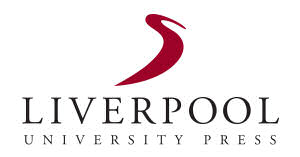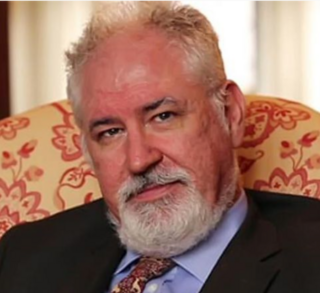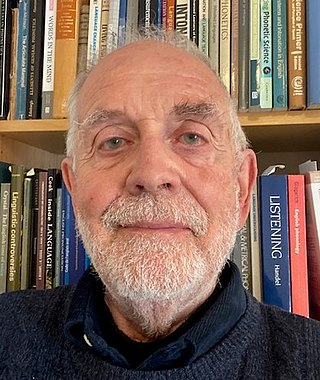
Sanskrit is a classical language belonging to the Indo-Aryan branch of the Indo-European languages. It arose in South Asia after its predecessor languages had diffused there from the northwest in the late Bronze Age. Sanskrit is the sacred language of Hinduism, the language of classical Hindu philosophy, and of historical texts of Buddhism and Jainism. It was a link language in ancient and medieval South Asia, and upon transmission of Hindu and Buddhist culture to Southeast Asia, East Asia and Central Asia in the early medieval era, it became a language of religion and high culture, and of the political elites in some of these regions. As a result, Sanskrit had a lasting effect on the languages of South Asia, Southeast Asia and East Asia, especially in their formal and learned vocabularies.
Oxford University Press (OUP) is the publishing house of the University of Oxford. It is the largest university press in the world. The first book was printed in Oxford in 1478, with the Press officially granted the legal right to print books by decree in 1586. It is the second oldest university press after Cambridge University Press, which was founded in 1534.

Cambridge University Press is the university press of the University of Cambridge. Granted letters patent by King Henry VIII in 1534, it is the oldest university press in the world. It is also the King's Printer.
Sir Noel Robert Malcolm, is an English political journalist, historian and academic, currently a Senior Research Fellow at All Souls College, Oxford. A King's Scholar at Eton College, Malcolm read history at Peterhouse, Cambridge, and received his doctorate in history from Trinity College, Cambridge. He was a Fellow and College Lecturer of Gonville and Caius College, Cambridge, before becoming a political and foreign affairs journalist for The Spectator and the Daily Telegraph.

Liverpool University Press (LUP), founded in 1899, is the third oldest university press in England after Oxford University Press and Cambridge University Press. As the press of the University of Liverpool, it specialises in modern languages, literatures, history, and visual culture and currently publishes more than 150 books a year, as well as 34 academic journals. LUP's books are distributed in North America by Oxford University Press.
John Kerrigan, is a British literary scholar, with interests including the works of Shakespeare, Wordsworth and modern poetry since Emily Dickinson and Hopkins, along with Irish studies.
Bernard O'Donoghue FRSL is a contemporary Irish poet and academic.
Andrew John Gurr is a contemporary literary scholar who specializes in William Shakespeare and English Renaissance theatre.
Science fiction studies is the common name for the academic discipline that studies and researches the history, culture, and works of science fiction and, more broadly, speculative fiction.

The English Historical Review is a bimonthly peer-reviewed academic journal that was established in 1886 and published by Oxford University Press. It publishes articles on all aspects of history – British, European, and world history – since the classical era. It is the oldest surviving English language academic journal in the discipline of history.
Derek Attridge FBA is a South African-born British academic in the field of English literature. He is Emeritus Professor of English and Related Literature at the University of York, having retired from the university in 2016, and is a Fellow of the British Academy. Attridge undertakes research in South African literature, James Joyce, modern fiction, deconstruction and literary theory and the history and performance of poetry. He is the author or editor of thirty books, and has published eighty articles in essay collections and a similar number in journals. He has held a Guggenheim Fellowship and a Leverhulme Research Professorship, and Fellowships at the National Humanities Center, the Bogliasco Foundation, the Camargo Foundation, and The Stellenbosch Institute for Advanced Study, the Freiburg Institute for Advanced Studies, and All Souls and St. Catherine's Colleges, Oxford. Among the visiting positions he has held have been professorships at the American University of Cairo, the University of Sassari, the University of Cape Town, Northwestern University, Wellesley College, and the University of Queensland.
Scott Thornbury is an internationally recognized academic and teacher trainer in the field of English Language Teaching (ELT). Along with Luke Meddings, Thornbury is credited with developing the Dogme language teaching approach, which emphasizes meaningful interaction and emergent language over prepared materials and following an explicit syllabus. Thornbury has written over a dozen books on ELT methodology. Two of these, 'Natural Grammar' and 'Teaching Unplugged', have won the British Council's "ELTon" Award for Innovation, the top award in the industry.
William Linn St Clair, was a British historian, senior research fellow at the Institute of English Studies, School of Advanced Study, University of London, and author.
M. A. Rafey Habib is an academic humanities scholar and poet.
Dr. Jens Michael Zimmermann is a German-Canadian Christian philosopher, theologian, and professor who specializes in hermeneutics and the philosophical and theological roots of humanism.

Andrew Philip McDowell Orchard, is a British academic of Old English, Norse and Celtic literature. He is Rawlinson and Bosworth Professor of Anglo-Saxon at the University of Oxford and a fellow of Pembroke College, Oxford. He was previously Provost of Trinity College, Toronto, from 2007 to 2013. In 2021, claims of sexual harassment and assault by Orchard were publicized, which were alleged at universities where he has worked, including the University of Cambridge and the University of Toronto.

Graham Holderness is a writer and critic who has published as author or editor 60 books, mostly on Shakespeare, and hundreds of chapters and articles of criticism, theory and theology. He was one of the founders of British Cultural materialism, a pioneer of critical-creative writing, and a significant contributor to interdisciplinary work in Literature and Theology.

Lucy Newlyn is a poet and academic. She is Emeritus Fellow in English at St Edmund Hall, Oxford, having retired as professor of English Language and Literature at the University of Oxford in 2016.
Elizabeth Solopova is a Russian-British philologist and medievalist undertaking research at New College, Oxford. She is known outside academic circles for her work on J. R. R. Tolkien's Middle-earth writings.

Peter John Roach is a British retired phonetician. He taught at the Universities of Leeds and Reading, and is best known for his work on the pronunciation of British English.








